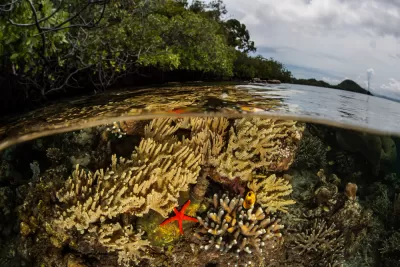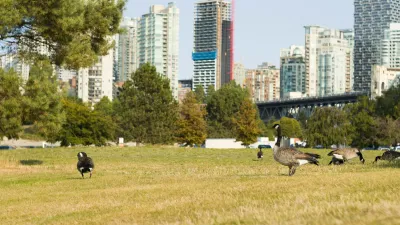The international framework pledges to protect 30 percent of land and water by 2030, but critics say it doesn’t go far enough to address the urgency of biodiversity loss and climate change.

A historic international agreement pledges to protect 30 percent of the earth’s land and water by 2030, reports Hannah Ward-Glenton for CNBC.
The deal, known as the Kunming-Montreal Global Biodiversity Framework, was reached at the United Nations Biodiversity Conference this week (COP15) and includes a promise to raise $200 billion. “Financing for poorer countries will increase to at least $20 billion per year by 2025, according to the agreement, set to increase to $30 billion annually by 2030.”
While the deal is a good start, Alfred DeGemmis, associate director of international policy for the Wildlife Conservation Society, says it should be treated as “a floor, not a ceiling,” indicating that governments must do more than outlined in the framework to achieve meaningful outcomes. According to a press release from the Society, “The Kunming-Montreal Global Biodiversity Framework is a compromise and although it has several very good and hard-fought elements, it could have gone further to truly transform our destructive relationship with nature.”
The article points out that “despite the name, many of the ‘30 by 30’ actions have 2050 as a deadline rather than 2030, which isn’t urgent enough according to the society.”
FULL STORY: Historic biodiversity agreement reached at UN conference

Planetizen Federal Action Tracker
A weekly monitor of how Trump’s orders and actions are impacting planners and planning in America.

Restaurant Patios Were a Pandemic Win — Why Were They so Hard to Keep?
Social distancing requirements and changes in travel patterns prompted cities to pilot new uses for street and sidewalk space. Then it got complicated.

Map: Where Senate Republicans Want to Sell Your Public Lands
For public land advocates, the Senate Republicans’ proposal to sell millions of acres of public land in the West is “the biggest fight of their careers.”

Maui's Vacation Rental Debate Turns Ugly
Verbal attacks, misinformation campaigns and fistfights plague a high-stakes debate to convert thousands of vacation rentals into long-term housing.

San Francisco Suspends Traffic Calming Amidst Record Deaths
Citing “a challenging fiscal landscape,” the city will cease the program on the heels of 42 traffic deaths, including 24 pedestrians.

California Homeless Arrests, Citations Spike After Ruling
An investigation reveals that anti-homeless actions increased up to 500% after Grants Pass v. Johnson — even in cities claiming no policy change.
Urban Design for Planners 1: Software Tools
This six-course series explores essential urban design concepts using open source software and equips planners with the tools they need to participate fully in the urban design process.
Planning for Universal Design
Learn the tools for implementing Universal Design in planning regulations.
Heyer Gruel & Associates PA
JM Goldson LLC
Custer County Colorado
City of Camden Redevelopment Agency
City of Astoria
Transportation Research & Education Center (TREC) at Portland State University
Camden Redevelopment Agency
City of Claremont
Municipality of Princeton (NJ)





























